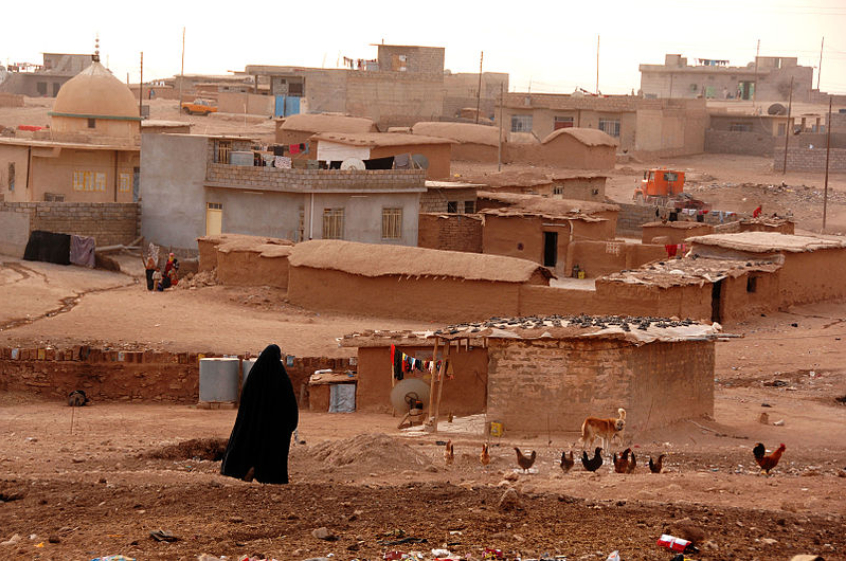A senior Iraqi priest has refused to leave his town as opposing armies assembled for battle.
The Chaldean cleric Father Salar Kajo along with nine other church workers remained in Teleskov, a Christian-majority town on the Nineveh Plains 19 miles from Mosul, despite Iraqi and Peshmerga forces gathering over the past two days.

Residents abandoned the town on Tuesday but Father Kayo refused to leave after previously being driven out of his town by ISIS, according to the Catholic charity Aid to the Church in Need.
Now with ISIS in retreat and 70 per cent of locals returned to their houses, Father Kajo, who has been crucial in restoring homes destroyed by Islamic militants, again insisted he would not leave.
It comes after he spoke at the launch of a report in parliament earlier this month, urging the UK government to ensure the aid it says is going to Iraq helps desperate Christian communities.
'We Christians see very little of this aid. In reality there is nothing,' he told the audience of MPs, officials and journalists in the House of Lords.
'I am there, I am working there, I know there is nothing. It is the church that has rebuilt the houses. UNICEF come just to paint the walls.'
Neville Kyrke-Smith, national director of Aid to the Church in Need, called for prayer and warned it would be a 'tragedy' if more fighting affected Christians.
'With the defeat of Daesh, we have been helping Iraq's Christians to repair their damaged houses, so that they can at long last return to the places they call home,' he said.
'It would be a tragedy if a new round of armed fighting shattered their dreams of going home.
'We ask everyone to pray for those affected – and call on others to do all they can to enable a lasting and stable peace.'
A statement from the Kurdistan Regional Government called for a ceasefire, promising to freeze the results of its controversial independence referendum in return.
'Attacks and confrontations between Iraqi and Peshmerga forces that started on October 16<sup>th, 2017, especially today's clashes, have caused damage to both sides and could lead to a continuous bloodshed, inflicting pain and social unrest among different components of Iraqi society,' the statement on Wednesday said.
'Certainly, continued fighting does not lead any side to victory, but it will drive the country towards disarray and chaos, affecting all aspects of life.'













